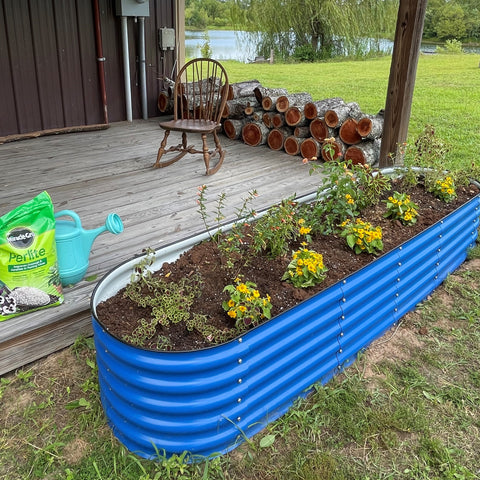Tips from Olle Garden Bed: 8 Things You Should Never Do In The Garden
It's natural to make mistakes when gardening, but be aware that some of them may cause serious damage to your garden. They may not mean much at first, but if you continue to ignore them, they may damage your plants and landscape.The following content also has some reference value for raised garden beds.
It is always a good idea to know what can and cannot be done in a vegetable garden to ensure that you will not do more harm than good to precious plants.

8 things you should never do in the garden
- Don't overuse fertilizer
You should use fertilizer only when your soil lacks specific nutrients. Think about it this way. You won't change your diet or add any supplements to your diet until you receive a series of tests that confirm that you need to change, right? Similarly, you need to test the soil before adding fertilizer to the garden.
Adding more fertilizer does not guarantee a good yield. Plants will only absorb nutrients when needed. You will waste a lot of fertilizer on plants that do not need them, and burn a hole in your pocket while doing so.
- Do not use broad-spectrum pesticides
The problem with using broad-spectrum insecticides is that, in addition to killing harmful insects and pests, they will eventually harm beneficial insects. When you encounter pest problems, you'd better identify pests first, and then propose solutions to eliminate them from the garden without harming other insects.
- Don't bite off more than you can chew
There is no pun, but when you plan your garden, try to grow what you eat. Many enthusiastic gardeners get carried away and finally invest in different seeds, fertilizers, soil, supplements, flowerpots, trellises, and so on!
It's great to join the trend of "growing by yourself", but you should know your limits, because starting from the big picture often leads to frustration. It's always a good idea to start small and grow what you eat until you're ready to try.
- Don't water plants too much
Most plants need about an inch of water a week, so overfeeding can suffocate the roots, leading to root rot and plant death. Like fertilizer, plants only drink water when needed and absorb nutrients from the soil.
Overwatering plants is like drowning them. To investigate whether your plant needs water, stick your finger into the soil about an inch or two deep. If you feel dry, your plant needs water. If it is wet, please check again within 24 hours. You can invest in buying a soil moisture meter to check for you.
- Don't neglect your seedlings
Be gentle as lambs when handling seedlings, and know where to plant them to avoid accidentally stepping on them. When you are busy transplanting plants, weeding, pruning or just enjoying your thriving garden, you may deviate from the track and cause you to step on the seedlings. You must mark the area with seedlings so that your subconscious can remind you!

- Don't overcrowd your garden
Like humans, plants need their own space. We must respect their boundaries and not overcrowd their space. After seeing the size of the seeds, it is easy to get carried away and plant more seeds in each hole. But remember, the size of the plant that grew from that small seed.
It is also important to follow the guidelines for plant spacing on seed packaging to achieve optimal plant growth. Planting too close encourages your plants to compete for sunlight, nutrients, and water, resulting in slow growth.
- Don't forget to weed
Maintaining your garden is difficult, but if you want to benefit from your hard work, don't neglect the weeds. They may look like fragile plants begging for some TLC, but know that their roots are causing serious damage to your other plants by stealing all their nutrients.
- Don't let animals and pets damage your crops
You can't completely prevent wild animals, pests, birds and pets from eating your juicy vegetables, but you should do your best. If you ignore those furry rabbits and majestic deer, you will wake up to find that half of the garden has been demolished. Of course, some wild animals are good for your garden, such as hummingbirds, bees and earthworms, but other wild animals can destroy your crops.
For defense, you should start to find ways to attract bees and create an ideal hummingbird habitat to keep aphids, mosquitoes, gnats, beetles, fruit flies and mites away from your vegetable garden. Alternatively, you can use plastic forks and copper straps or make DIY scarecrows to keep deer, rabbits, slugs and snails away from your garden.
It's natural to make mistakes in gardening, but it's important not to let them stop you from doing what you're best at. Gardening, like everything else, is a process of trial and error. You won some and lost some! That's why we compiled this list of eight things you shouldn't do in the garden.
